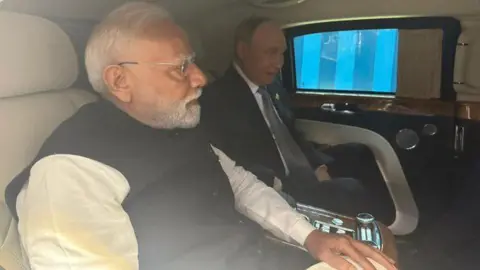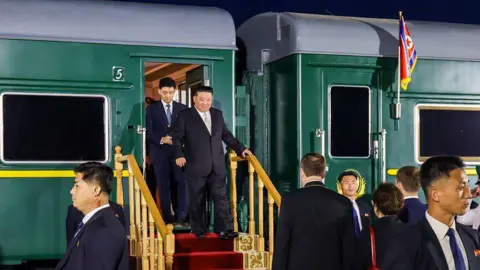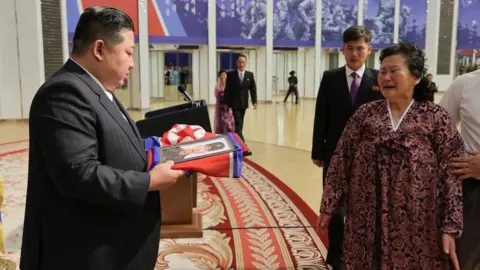Ramzan Kadyrov has been an enigmatic and dominant figure in Chechnya for nearly two decades, known for his brutal tactics against dissent and a heavy-handed approach to governance. As the strongman allied with President Vladimir Putin, Kadyrov's rule has created a semi-autonomous environment in the tumultuous region, though rumors about his deteriorating health have stirred speculation about the future leadership landscape in Chechnya.
Currently aged 48, Kadyrov has controlled the region with an iron fist, decisively quelling efforts for independence in the face of fierce conflicts throughout the 1990s and early 2000s. His close relationship with Putin has provided him latitude and support, but with growing concerns over his health, questions are looming about who could uphold his oppressive regime.
Potential successors are emerging, most notably his 17-year-old son, who recently celebrated his marriage and received recognition from Putin. However, Kadyrov's junior-age successor may face legal complications, as Russian law stipulates a minimum age of 30 for regional leaders. Other prominent figures vying for potential power include individuals with controversial reputations linked to abuses against the LGBTQ community and those who fought on behalf of Russia in the Ukrainian conflict.
Throughout his governance, Kadyrov has operated with considerable freedom, imposing stringent Islamic practices that defy national law and engaging in his version of foreign diplomacy with nations such as those in the Middle East. Notably, Chechnya was spared from Russia's broader draft efforts during the 2022 invasion of Ukraine, although reports suggest that some locals were reluctantly dispatched as part of punitive measures. Kadyrov's troops garnered ridicule early in the Ukrainian war, dubbed “TikTok soldiers” for their tendency to showcase their activities on social media rather than engage effectively in combat.
As uncertainties deepen around Kadyrov’s future health and the viability of his succession plan, the international community watches closely, aware of the potential ramifications of a power vacuum in one of Russia’s most volatile regions.





















